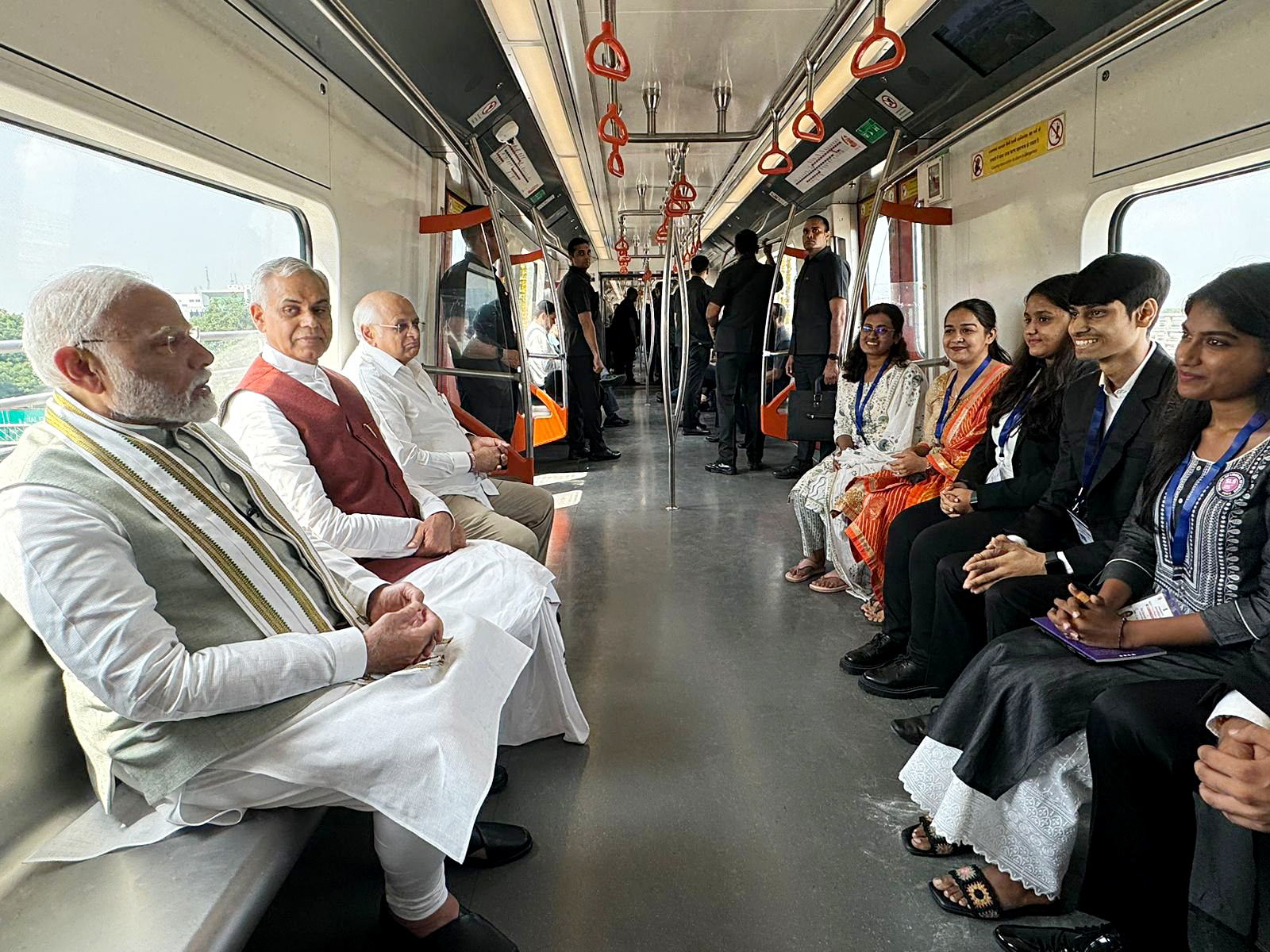With Prime Minister Narendra Modi laying the foundation for multiple urban railway development projects worth over Rs 12,200 crore in Delhi on Sunday, India is well on track to become the second-largest metro rail network in the world, according to a statement by the Ministry of Housing and Urban Affairs on Sunday.
The country has already become home to the third-largest metro network in the world, covering over 1,000 km across 11 states and 23 cities, providing millions of people in the country a quick, easy and affordable means of travel.
“On January 5, Prime Minister Narendra Modi took a giant leap in enhancing India’s metro network, making it more powerful and advanced with the laying of the foundation for multiple development projects worth over Rs 12,200 crore in Delhi, including the inauguration of the 13 km stretch of the Delhi-Ghaziabad-Meerut Namo Bharat corridor, which will greatly ease travel between Delhi and Meerut,” the official statement said.
In addition, the Prime Minister launched a 2.8 km stretch of Delhi Metro Phase-IV, benefiting West Delhi and laid the foundation for the 26.5 km Rithala-Kundli section, further strengthening connectivity between Delhi and Haryana. These projects represent a major milestone in transportation, as Metro systems now cover greater distances and serve over 1 crore passengers daily.
With this growth, India surpassed Japan in Metro Rail Projects in 2022. Currently, India ranks third globally in operational Metro network length and is on track to become the second-largest Metro network in the world, the statement said.
The milestones in the history of Metro in India include the setting up of the Delhi Metro Rail Corporation (DMRC) in 1995 to bring world-class Mass Rapid Transport to Delhi. The project gained momentum with joint participation from the Central Government and the Government of Delhi.
DMRC opened its first metro corridor between Shahdara and Tis Hazari in Delhi in 2002, setting the stage for one of the country’s largest metro networks. This was followed by Namma Metro’s (Bengaluru Metro) first segment being built in 2011.
The next major landmark was the Chennai metro expansion in 2017 with the inauguration of its first underground section on the Green Line, from Koyambedu to Nehru Park, marking a key milestone for Southern India’s metro development. In 2020, Phase 1 of the Kochi Metro was completed, with the Thykoodam-Petta stretch commissioned, making Kerala part of the growing metro network in India.
Metro expansion in India has gone beyond just land-based transport, embracing innovative solutions for the future. From under-river tunnels to driverless trains and water metros, India is setting new standards in modern urban mobility. The projects include:
- India’s first under-water metro tunnel in Kolkata, where the Esplanade-Howrah Maidan section passes beneath the Hooghly River, inaugurated by PM Modi in 2024. This remarkable feat showcases India’s engineering capabilities.
- India’s first-ever driverless metro service on Delhi Metro’s Magenta Line, setting a new benchmark for automation in public transport, was launched on December 28, 2020.
- Kochi, Kerala, became the first city in India to launch a Water Metro Project, connecting 10 islands around the city with electric hybrid boats. This groundbreaking initiative ensures seamless connectivity, with the first boat launched in December 2021.
- The approval of three Metro Rail Projects that include the expansion of networks in Bengaluru, Thane and Pune represent another quantum leap in environment-friendly city travel.
- While Bengaluru Metro Project which covers 44 km expansion comprises two corridors, the Thane Metro Project, which stretches across a 29 km network aimed at reducing congestion on the roads, and the Pune Metro Project, covering a 5.5 km route to further improve urban mobility in the city.
These key developments in Metro systems across major cities laid the foundation for the vast and efficient metro network that connects millions today, the statement highlighted. Along with domestic progress, there is increasing international interest in India’s expertise in Metro rail systems.
The Delhi Metro Rail Corporation (DMRC) is currently overseeing the implementation of a metro system in Bangladesh and has offered consultancy services in Jakarta. Countries such as Israel, Saudi Arabia (Riyadh), Kenya and El Salvador are also exploring collaborations with DMRC for their metro development projects, the statement added. (IANS)




















